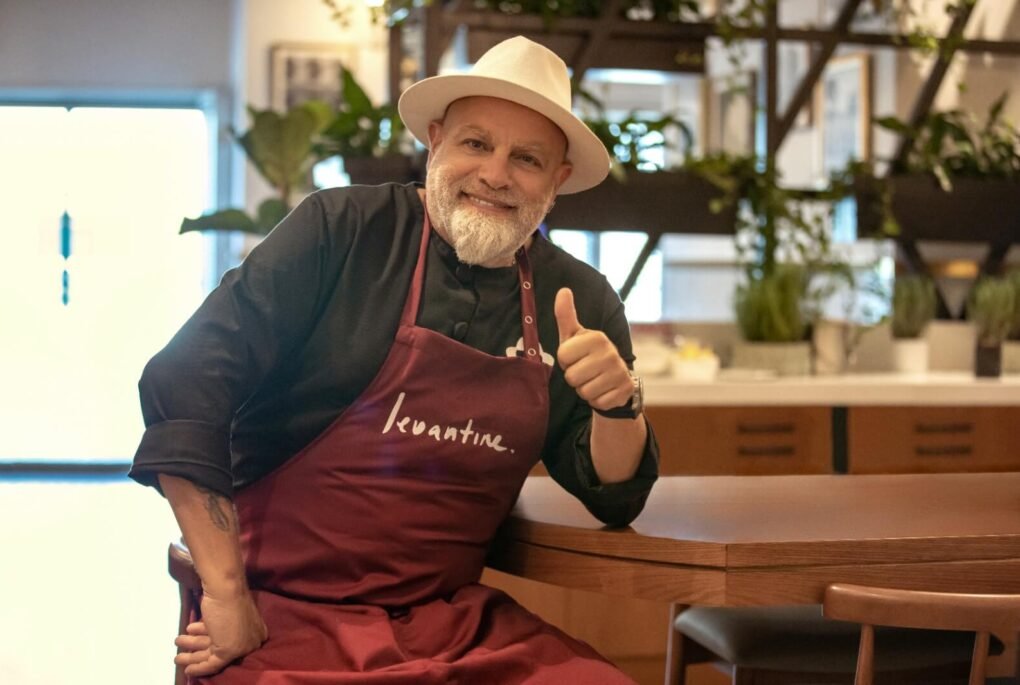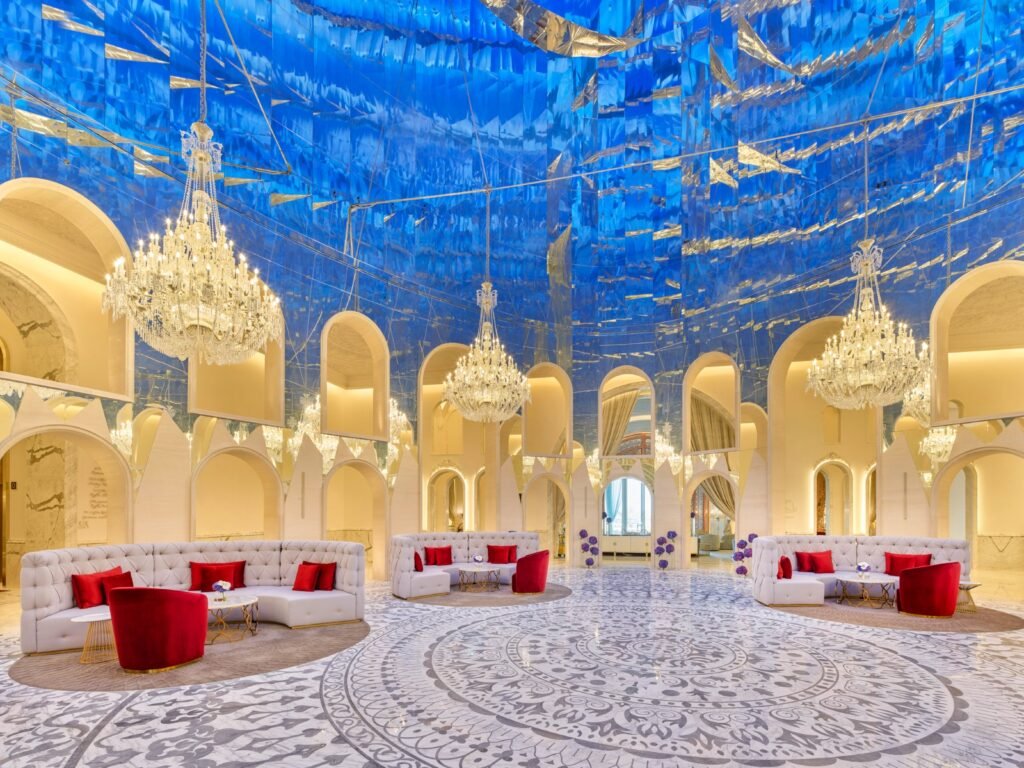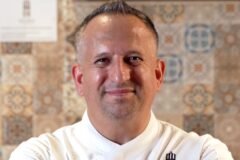INTERVIEW
By Elias Haddad
You have a vast 22 years of cooking and kitchen management experience, if people can only manage to adopt a few new practices from your experience, what do you consider to be the three most important and effective ones for healthy cooking?
- My three fundamentals for healthy cooking are to first approach the task with a particular level of discipline; second, to continuously enhance cooking techniques and become familiar with ingredients, and lastly, to treat the ingredients with respect, ensuring that when combined, they truly complement each other.
You are a Master of Modern Lebanese cooking; how do you describe your style of cooking?
- Besides upholding the fundamentals of any chef’s responsibilities (offering a tasty, nutritious and attractive meal that meets or exceeds the guest’s needs), my style is to create a cuisine that has soul, a character of its own. To do this, I use colors. Ingredients are full of colors, and these can be explored in countless ways. While I absolutely value, cherish and respect authentic Lebanese cuisine, I find it important to incorporate my own twist to each dish, truly making it my own.
Being a pioneer of Lebanese fusion cuisine, we’d like to know what exactly this term means?
- Being its pioneer, Lebanese fusion cuisine means taking traditional dishes and incorporating a modern twist to them. Take for instance the famous “burghul banadoura”. Both ingredients – the burgul and tomatoes – when put together, create a popular traditional Lebanese dish. What I do instead, is use these ingredients in different ways that would still ignite nostalgia yet go beyond the traditional.
You have participated in so many international events, can you share some tips you have for young, aspirational cooks? What are the dos and don’ts of such events?
- In my opinion, the most valuable advice is to put one’s ego aside. Chefs should be prepared to improve their skills, whatever their experience, and should engage in knowledge-sharing. International cooking events present tremendous opportunities to learn from chefs of all walks of life and all corners of the world, and, in turn, grow in the culinary world.
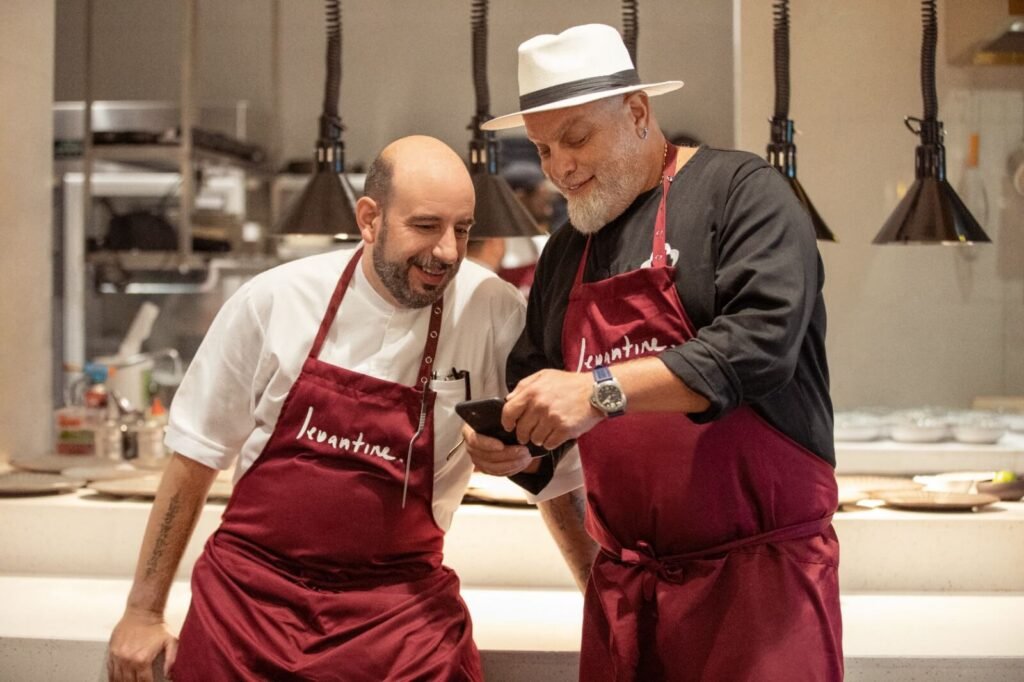
Looking to the future, how will people eat? Will we continue down the road of eating less synthetic and processed food and fresher more whole foods?
- I take pride in saying that we are in what I can only describe as an eating revolution. Highly processed and synthetic foods have had their day, and people are appreciating more and more fresh, wholesome and healthy foods. This reflects the global awareness trend around healthy eating. I very much welcome this trend as I strongly believe it will help people live better and combat diseases such as diabetes.
Are there any ingredients that have fallen out of fashion for you?
- I am not a fan of fat-rich dairy products such as ghee, cream and butter. I avoid using them in my cuisine. I much prefer the lighter and healthier touch delivered by olive oil in particular.
Tell us about some recipes in that really excite you, because of the flavor combinations or some other new element.
- I created a fabulous new recipe when I marinated tuna with shawarma spices that I then laid on a bed of artichoke salad – believe me, it’s delicious! This recipe won an award at a key industry event in Sardinia. I also like mixing traditional Lebanese moughrabiya stew together with salad – which may sound odd but is simply an amazing main course and the perfect comfort food! It also makes for a full, well-balanced meal that the whole family can enjoy.
Which ingredients or dishes best define Lebanese cuisine?
- In my opinion, Lebanese cuisine is defined by key essentials: Zaatar, hummus, raw kibbe, tabbouleh, fattoush, labneh and our plethora of grains, beans and legumes.
Lebanese food is extremely healthy, instead of butter or cream people use olive oil in food, fresh food ingredients are used while cooking any dish. What do you have to say about it?
- One of the reasons why Lebanese cuisine is healthy is mainly due to the fact that a lot of dishes are dependent on seasonal ingredients and, of course, olive oil being preferred over butter. Lebanese cuisine also features many vegetarian favorites, all of which are healthy. Besides, the quality and taste of vegetables and fruits in Lebanon are quite unique and universally distinctive – evidently, more flavorful than anywhere else, even in its geographical region.
With international ingredients now so easily available, how do you see the Qatari hospitality market growing?
- Ingredients are now widely available worldwide. Having said that, I believe the Qatari market is developing its own local produce at a steady pace and I am sure that these will eventually be incorporated into the local cuisine. I see enormous potential for the Qatari market, especially in light of major global events that will be hosted in the country. People around the world will become more familiar with Qatar and what it has to offer; I am sure many will want to come and visit. Once they land, they will witness first-hand Qatar’s world-class hospitality.
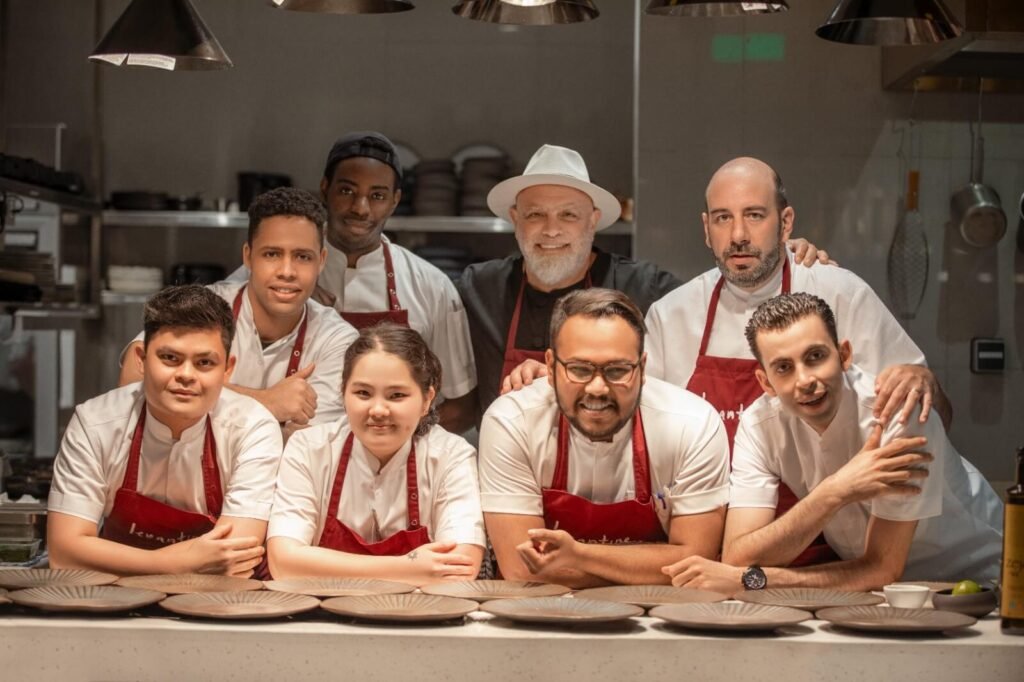
We know you’ve done quite a bit of traveling. Is there a country that stands out for unique or bold flavors and or just the whole culture of sitting down and eating?
- I am in no position to rank culinary experiences; for each culture has plenty to offer! In the culinary world, we respect every country’s ingredients, people and gastronomic traditions. We strive to learn from one another. For me, it’s always a pleasant adventure to discover new ingredients, understand their health benefits and explore new flavors. In fact, the most enjoyable part in this adventure is to incorporate these into my own dishes and create new taste thrills.
What did you add to the menu of the Levantine restaurant located in Hilton The Pearl, and what makes it different from others?
- Levantine is a unique concept that was created by a collaboration between myself and Hilton The Pearl’s Executive Chef Thibaut Pouplard. We combined our knowledge and techniques to retain authentic Lebanese flavors, while creating new presentation styles. Therefore, everything is unique from the taste of the dish to its presentation and the entire atmosphere that surrounds the restaurant.
How would you describe Levantine’s menu?
- Levantine’s menu is a modern take on traditional Lebanese dishes with creative twists. It is a menu for those who appreciate healthy cuisine and are curious to awaken their taste buds. The menu caters to everyone, from carnivores to pescetarians, vegetarians, vegans and even lacto-/ovo-/vegetarians.
PHOTOGRAPHY: PHOTO PHACTORY BY PRADEEP



